When it comes to navigating the challenging waters of job applications, facing rejection can be disheartening, especially when it stems from a lack of experience. It's essential to remember that every successful professional has walked this path at some point, and gaining experience often begins with sustained effort and growth. In our article, we'll explore thoughtful ways to respond to such rejections and how to turn them into opportunities for self-improvement. So, if you're ready to transform setbacks into stepping stones, join us as we delve deeper!

Professional tone and politeness
In evaluating candidate qualifications for the Marketing Specialist position at Innovative Solutions Inc. in September 2023, it was determined that the experience criteria were not sufficiently met. Although we appreciate your enthusiasm and the unique skills you bring, the role demands a background in digital marketing strategies, specifically a minimum of three years in campaign management and analytics. We encourage you to gain more relevant experience and apply for future opportunities that align with your skill set. Thank you for your interest in our company.
Clear reason for rejection
The candidate's application for the Project Manager position at Tech Innovations LLC has been thoroughly evaluated. A significant factor in the decision is the requirement for at least five years of relevant project management experience in the IT sector, notably experience with Agile methodologies and team leadership. The evaluated resume indicated only two years of experience, primarily in junior roles, which does not meet the essential criteria outlined in the job posting. Additionally, strong familiarity with software development lifecycle and risk management techniques is paramount for this role, yet the candidate's experience in these areas appears limited. Consequently, the application has been declined.
Encouragement and constructive feedback
In the competitive landscape of job applications, candidates often encounter rejection due to insufficient experience, a critical factor in hiring decisions. For example, a marketing coordinator position may require two to three years of relevant experience in areas such as digital campaigns, social media management, and analytics tools like Google Analytics or Hootsuite. Hiring managers value practical skills attained through internships, volunteer work, or entry-level roles. Constructive feedback might suggest participating in relevant workshops, pursuing certifications, or gaining hands-on experience through freelance projects or internships. Additionally, networking within professional organizations can provide insights and connections, ultimately enhancing future job prospects and enriching the candidate's portfolio.
Expression of future consideration
Applying for a position at a renowned organization often requires a robust foundation of experience in the specified field. Candidates may face rejection based on insufficient expertise in areas vital for job performance, such as project management, technical skills, or relevant industry background. In such instances, applicants might receive a communication indicating that their qualifications did not align with the immediate demands of the role. Despite the setback, organizations often express a willingness to reconsider individuals for future opportunities as their skills develop or as new positions arise. This acknowledgment emphasizes the importance of continual professional growth and maintains a positive rapport for potential future engagements.
Contact information for inquiries
Rejection letters often stem from candidates lacking the requisite experience for specific job postings. The hiring process, particularly in competitive fields such as technology or finance, emphasizes candidates with a minimum of three to five years of relevant experience. Employers may seek applicants familiar with industry-specific tools, methodologies, or practices, often highlighted in job descriptions. Direct contact information, including email addresses or phone numbers, is crucial for candidates to obtain insights and feedback regarding their applications. Clear explanations of rejection help maintain a positive employer brand and encourage candidates to apply for future opportunities.
Letter Template For Rejection Due To Lack Of Experience Samples
Letter template of regret for application due to insufficient experience.
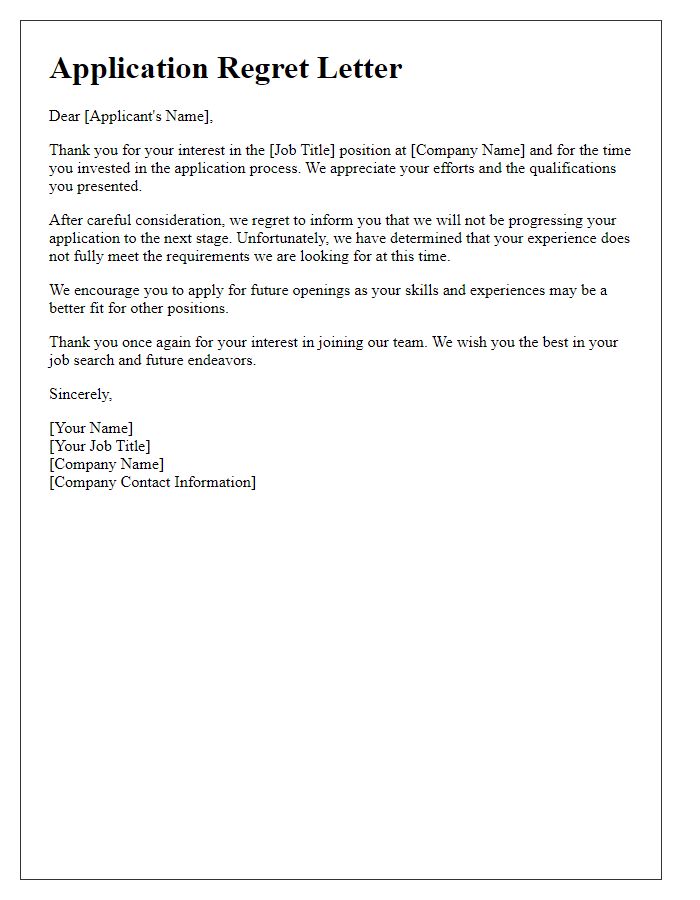
Letter template of notification for rejection due to experience requirements.
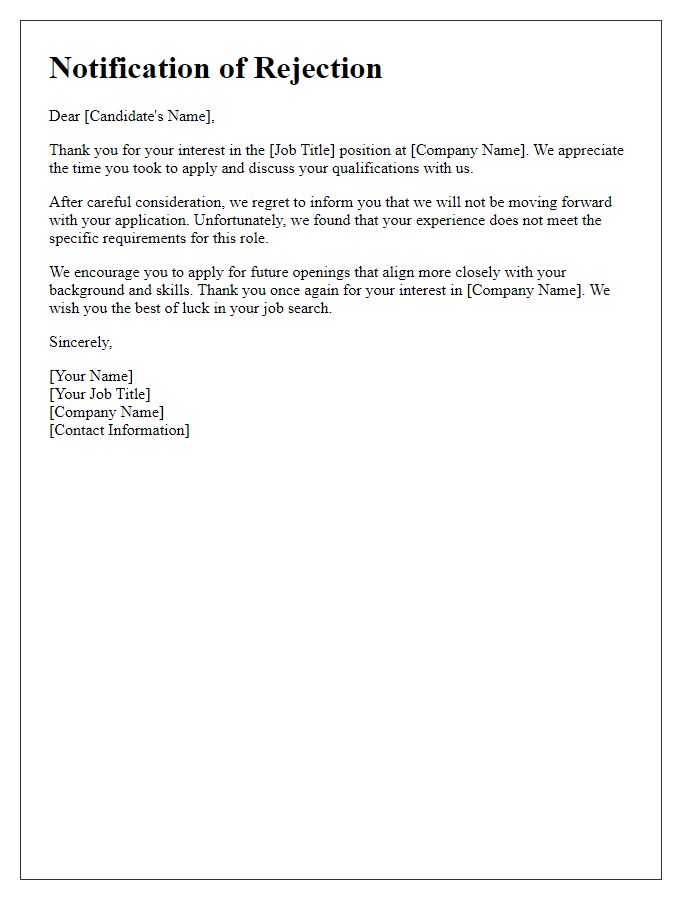
Letter template of response for application rejection related to experience level.
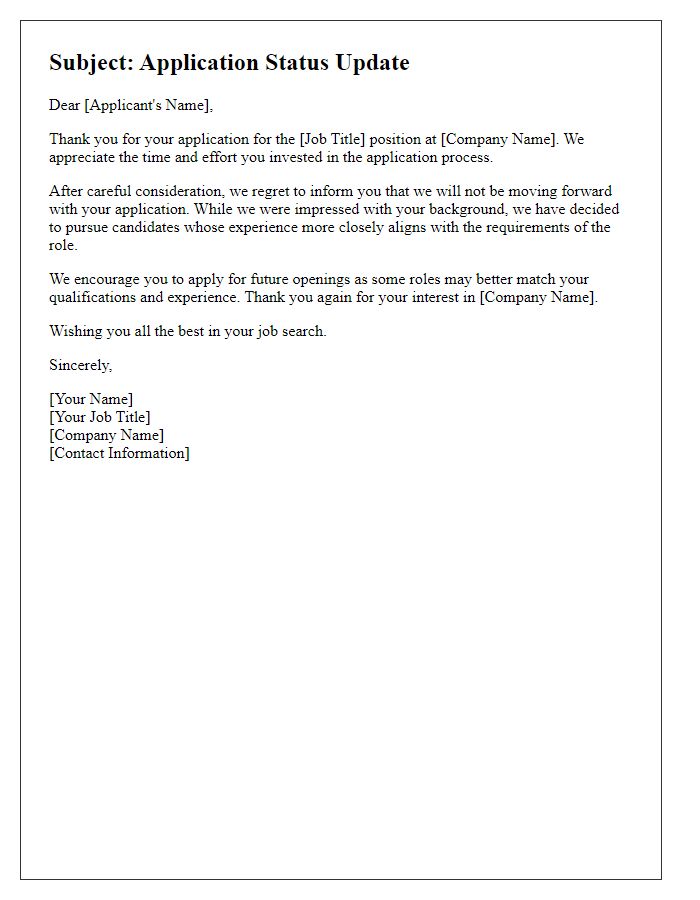
Letter template of communication for unsuccessful application due to lack of qualifications.
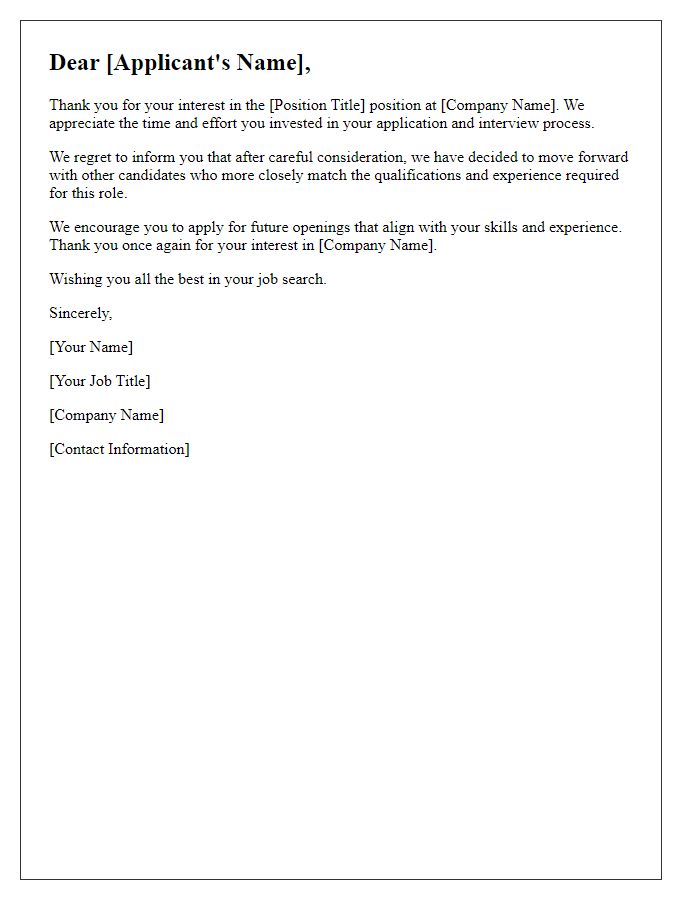
Letter template of feedback regarding application rejection for experience reasons.
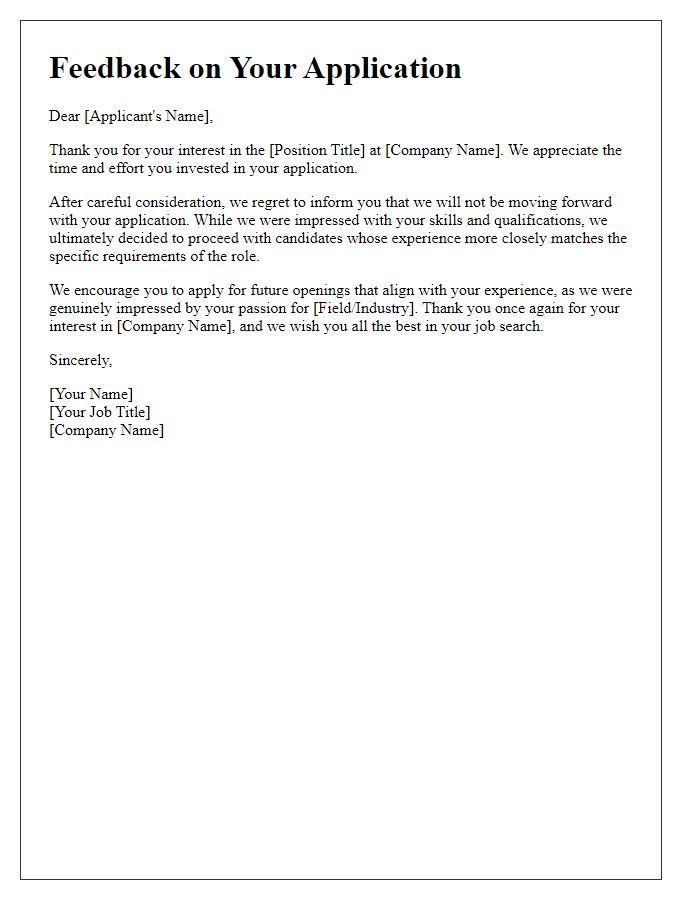
Letter template of acknowledgment for application with insufficient professional background.
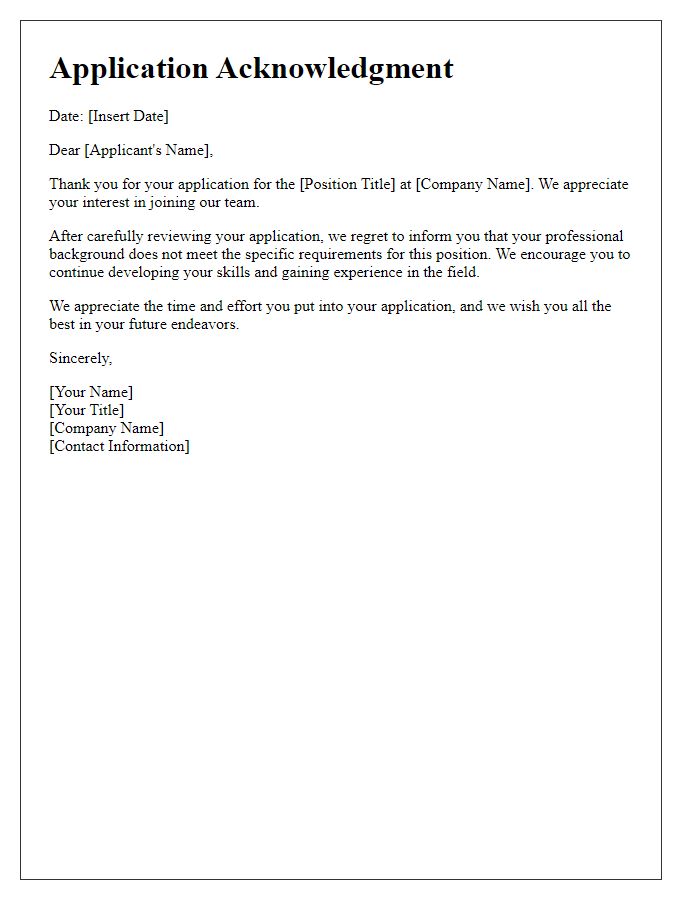

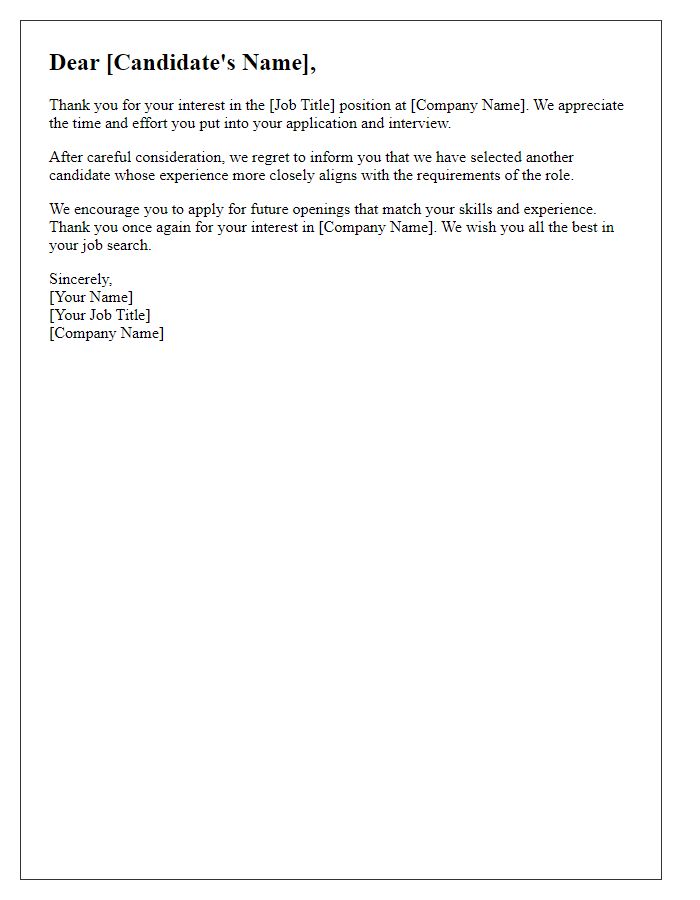
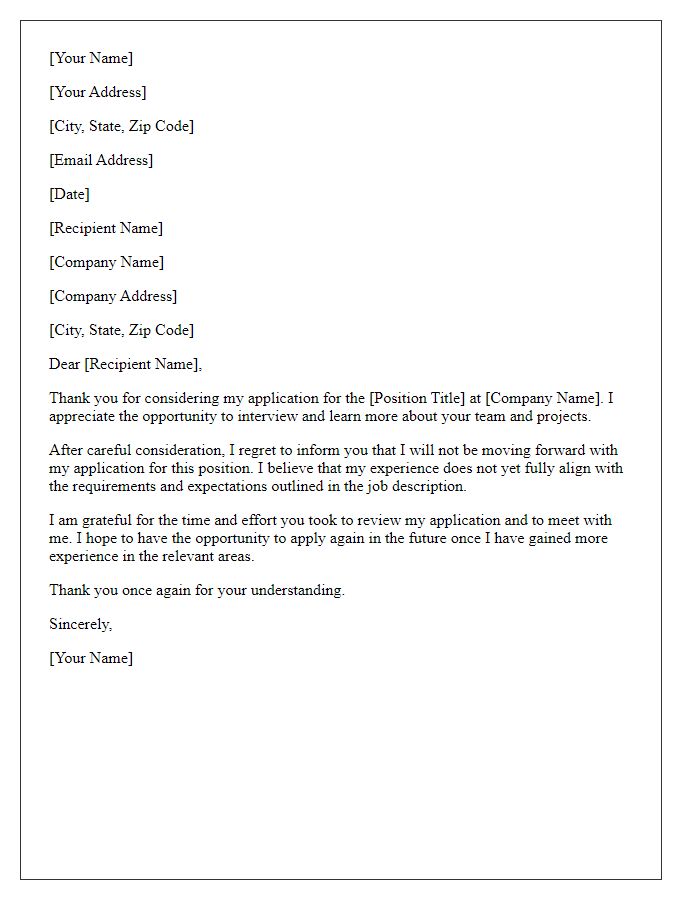
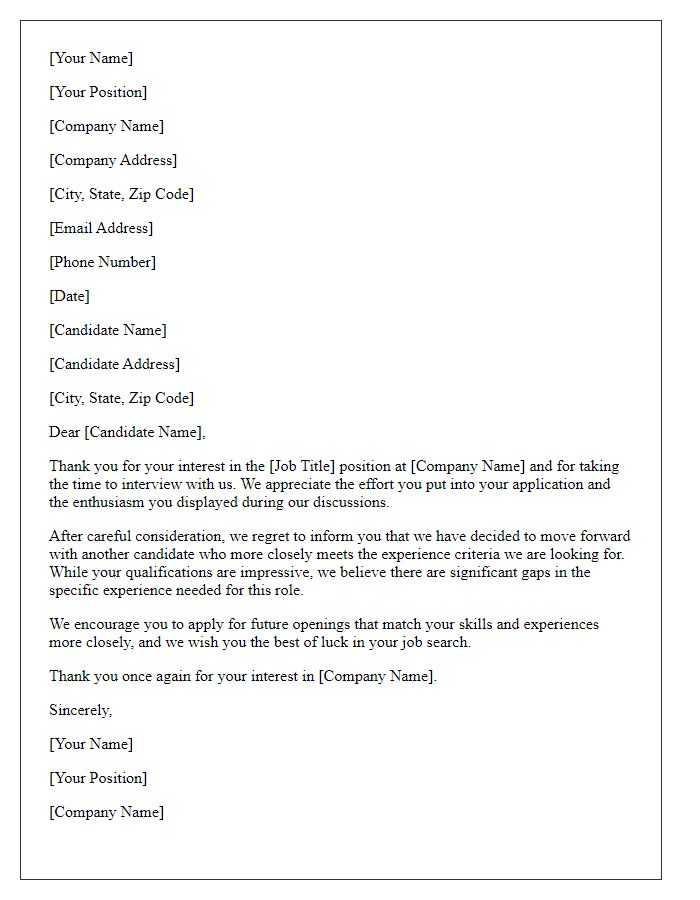
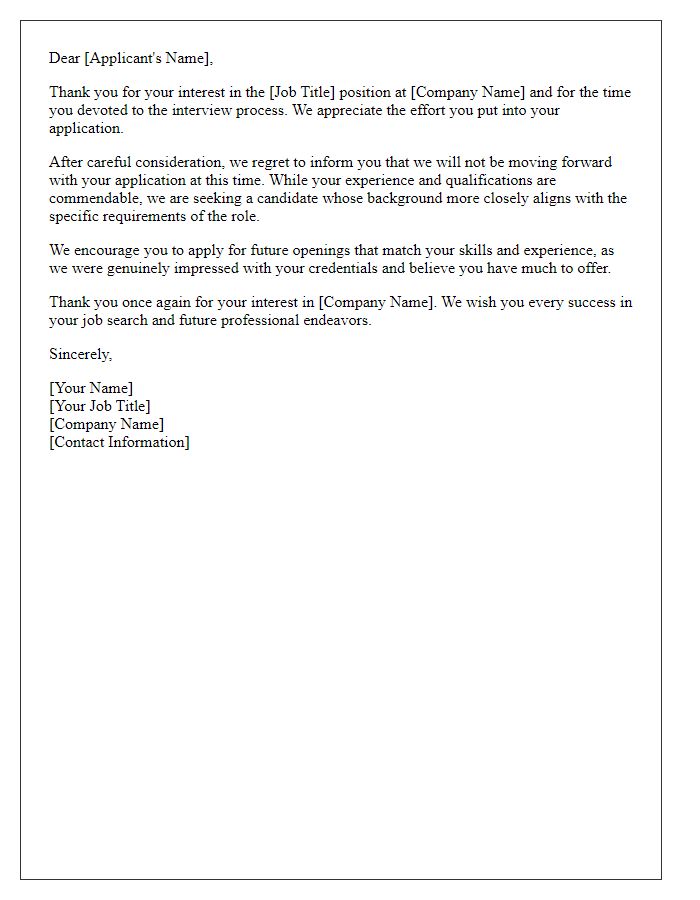


Comments